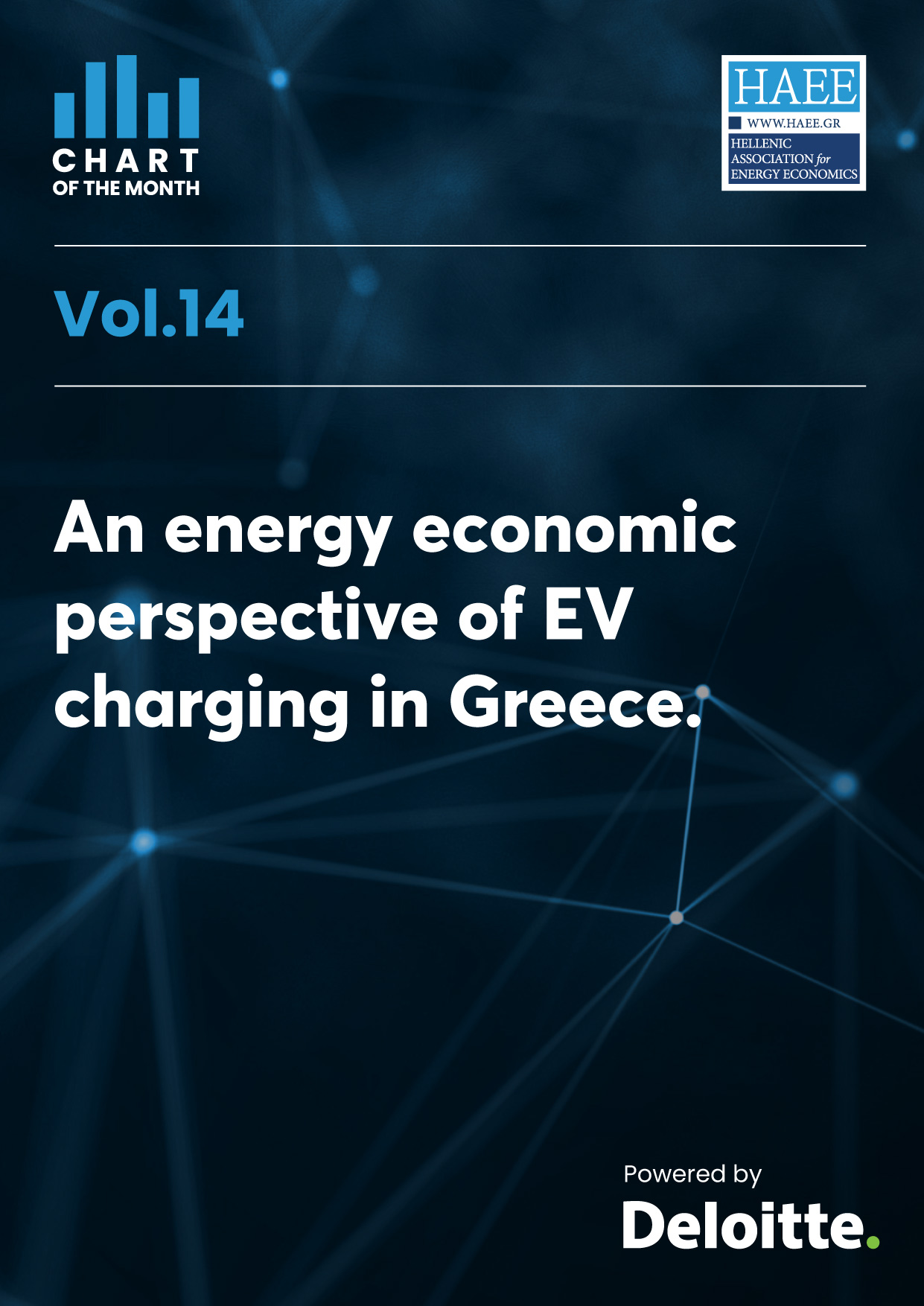Tel: +30 210 92 30 422
E-mail: info@haee.gr
Address
62, Charilaou Trikoupi Str.
Kifissia, 14562
Athens, Greece

The 14th Edition of the Chart of the Month is powered by Deloitte and it is focused on the Energy Economic Perspective of EV Charging in Greece.
With its member nations being responsible for more than a quarter of the world's electric vehicle (EV) manufacturing, the European Union is leading the way in the adoption of EVs globally. That will lead to the creation of new jobs, a reduction in air pollution, a quicker advancement of climate change goals, and the development of Europe as a global EV leader. E-mobility is developing rapidly in Greece as well, occupying a prominent position in the transport debate. As the number of EVs on the road increases, the EV-per-charger ratio can help assess the suitability of the charging network.
More specifically, in 2022, there were 1908 AC stations and 160 DC stations, nationwide, reaching in total an exponential raise of 2941% within a four-year period. The number of BEVs tripled between 2020 and 2021 indicating that the supply (chargers) experiences a higher rate of increase by 250% in comparison to the demand (BEVs). Electromobility has the potential of being the most cost-effective solution, however DC fast charging is still expensive, reaching the price levels of petrol and diesel. Currently in Greece, there are 11 routes in highways between the large cities, where DC charging infrastructure is limited. A recent study from Deloitte indicates a general willingness of users to wait substantially longer than 10 minutes to recharge (relative to conventional brick-and-mortar petrol stations).